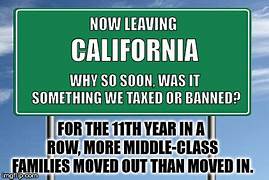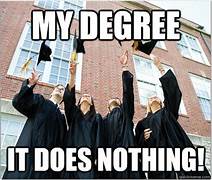The United States is a nation of shortages. We lack water, we lack energy, we lack toilet paper—we do not lack government lying to us and corporations demanding to control us—with Biden and pals backing them up. How else do not explain professional sports becoming a political rally for racists?
Hertz, the rent a car company is now forced to buy used cars—since automakers are limited in making news ones, due to a lack of computer chips. This is a shortage that will harm the creation of phones, TV’s, refrigerators and more. As part of the shortage, government can not repeal the Law of Supply and Demand. If the supply is limited and the demand is high, the available product will sky rocket. Just look at how government policy on trees has DOUBLED the cost of lumber in one year—adding thousands to the cost of a new house.
Now the chip shortage will add to the government created inflation (when you print $6 trillion dollars with nothing to back it, you get Germany, 1930 style inflation.

By Richard Colman, Exclusive to the California Political News and Views 5/6/21
Petroleum was the key ingredient of 20th century economics and beyond.
For the 21st century, the key ingredient is silicon chips, sometimes called microprocessors or semiconductors.
Silicon chips are essential in the manufacturing of computers, cell phones, cars, electrical appliances (like televisions), and other products.
Currently, there is a shortage of chips. Car dealers and other businesses are scrambling for more chips. Buying a new car may be difficult or impossible given the current chip shortage.
But there is a more ominous aspect facing the chip industry. The leading manufacturer of chips is no longer inside the United States. The leading manufacturer is the Taiwan Semiconductor Manufacturing Company (TSMC).
TSMC is located in Taiwan, a entity which China covets and may wish to take over militarily at any time. Taiwan, an island, is 100 miles from the Chinese mainland.
If China were to occupy Taiwan, it would be similar to taking over all of the oil in the Middle East, the United States, and other oil-producing regions.
With a Chinese takeover of Taiwan, China would — or could — rule the world unless there were, outside of Taiwan, other reliable chip manufacturers.
The Economist (May 1, 2021, issue) has investigated chip manufacturing.
According to the magazine, Intel, an American company with headquarters in California’s Silicon Valley, supplied 100 percent of the world’s chips. By 2016, Intel handled 30 percent of chip-making. TSMC and Samsung, a South Korean company, handled the rest. By 2021, according to The Economist, TSMC was handling 84 percent of chip-making and Samsung took care of the remaining 16 percent. Intel seemed nowhere to be seen.
According to The Economist, TSMC, ” . . . controls 84% of the market for chips with the smallest, most efficient circuits on which the products and services of the world’s biggest technology brands, from Apple in America to Alibaba in China, rely.”
The Economist continued: “In 2020, 62% of TSMC’s revenue came from customers with headquarters in North America and 17% from those domiciled in China.”
The United States cannot afford to be dependent on chips that come from abroad.
Being dependent on foreign-made chips will put the United States in a position similar to where the nation was in 1973-74, when America was heavily dependent on imported oil. Anyone familiar with that era, will remember long lines for gasoline in America because Middle East oil suppliers embargoed oil shipments to the U.S. or raised oil prices to very high levels.
The United States must reclaim its 2009 lead in chip-making. This will require several actions.
The U.S. must provide incentives to such domestic chip-making firms as Intel. To help the American chip industry, taxes on profits of chip-makers should be reduced or eliminated. The administration of President Joseph Biden wants to raise taxes on businesses. This idea should be shelved.
The U.S. must provide economic support to universities that educate the engineers, scientists, mathematicians, and technologists who can help America recover its lead in chip production. Students graduating in these fields should get their tuition refunded.
In 1957, the Soviet Union launched the first man-made earth satellite, Sputnik. This event made the Soviet Union first in the race for space. Shortly after Sputnik’s launch, the federal government passed the National Defense Education Act (NDEA), which provided aid to students and schools (including universities) that promoted science and science education. Shortly after Sputnik was launched, Congress passed and President Dwight Eisenhower signed the NDEA.
In May of 1961, President Kennedy, in an address to a joint session of Congress, proposed that by the end of the 1960’s the United States would put a man on the moon and return him safely to earth.
Currently, the United States is facing another Sputnik moment. The nation cannot afford to let China, especially if China takes over Taiwan, dominate world-wide chip manufacturing.
Making America number one in chips will create jobs not just in America but especially in California’s Silicon Valley, about 40 miles south of San Francisco.
As President Kennedy promised, America, in 1969, put two men on the moon and returned them safely to earth. Since 1969, no other nation has put astronauts on the moon.
The U.S. won World War II and won the space race. America, which has done so well scientifically in the past, can still perform great scientific feats in the future. Let’s make sure America is number one in chip-making.



